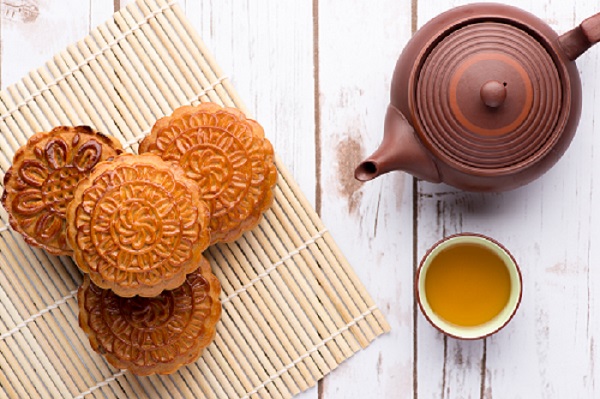Celebrating your student’s culture by way of celebrating a traditional holiday from their home country is a great way to start off on the right foot with your international student. If you are new to hosting an international student from East Asia, or are unfamiliar with Chinese culture, this holiday will certainly be new to you too.
The moon festival, also known as the Mid-Autumn Festival, is an important holiday in Chinese culture. This year the festival falls on September 15. The ancient Chinese observed the moon’s movements and observed its close relationship with seasonal changes and agricultural production. To express their thanks to the moon and celebrate the harvest, they offered a sacrifice to the moon on autumn days. There are many legends and stories related to the festival, but the most prominent one is the romantic legend of Chang’e.
Family members gather to offer sacrifice to the moon, appreciate the bright full moon, and most importantly eat moon cakes. Moon cakes are round like a full moon, and are a symbol of peace, prosperity and reunion for the whole family. Moon cakes are traditionally filled with flavors such as lotus seed paste, sweet bean paste and egg yolk. More modern fillings include ice cream or chocolate.
Eating moon cakes is a way to express familial love and best wishes for a harmonious and well-rounded life. Many grocery stores sell moon cakes in the international food aisle, but making your own is a great way to bond with your student. Here are three recipes for you to try at home:
- Traditional Cantonese Mooncakes, from Food52.com
- Simple Mooncakes, from allrecipes.com
- Yue Bing Mooncakes, from chinasichuanfood.com
Many students will be thrilled to share their personal, family traditions of how they celebrate the Moon Festival. Invite your student to share with you how they celebrate at home. You’ll surely learn something new about your international student’s culture.
Other students, however, may begin to exhibit signs of isolation, anxiety and loneliness that are typical for those experiencing the second stage of culture shock. Be on the lookout for behaviors that indicate homesickness, and contact your support services coordinator for guidance on how to help your student through this potentially difficult time.



